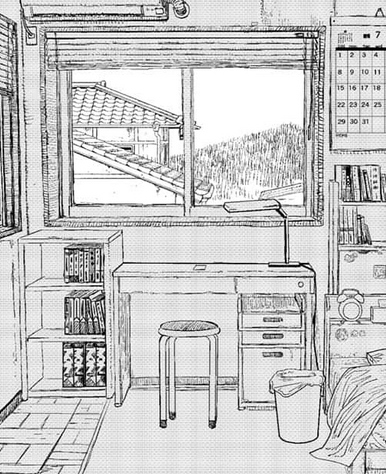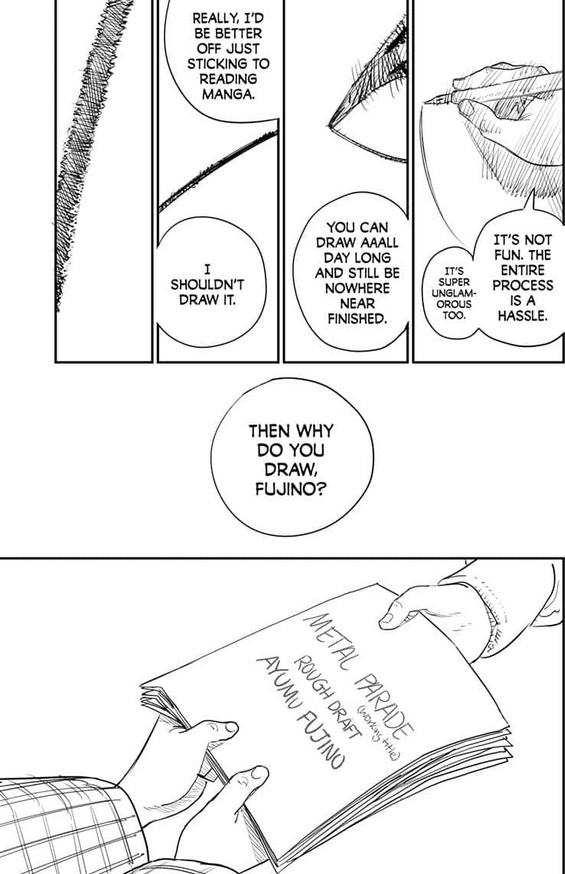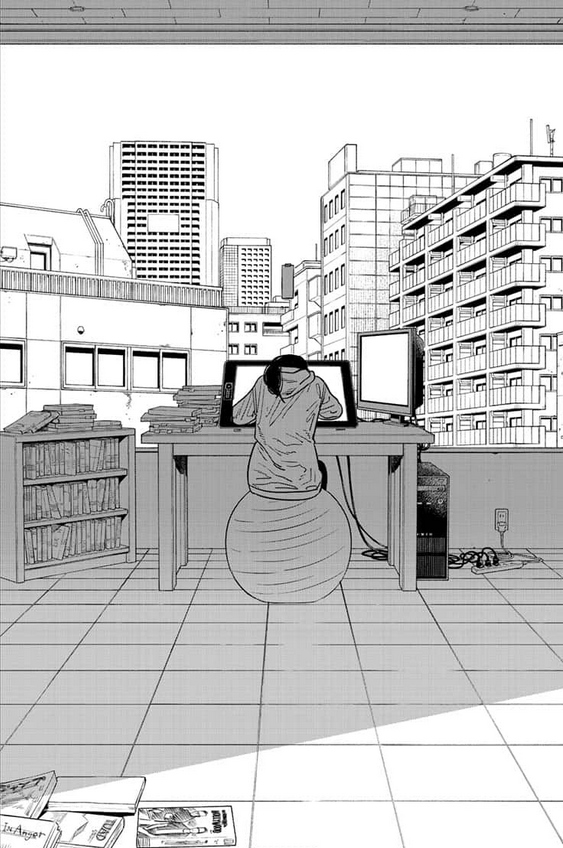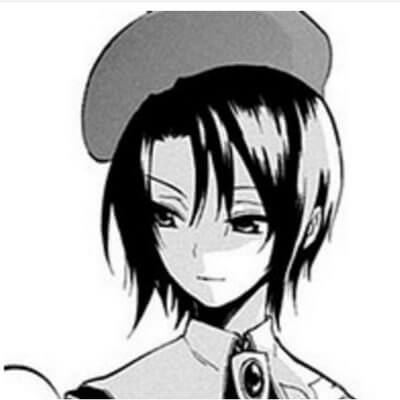This note contains semi-public thoughts.
It is personal and subjective, like a diary entry, but I still hope it can be enjoyed and understood by strangers online. Feel free to share it around with friends or in communities you’re a part of!
Just bear in mind that this remains a piece of personal writing at the core. It most likely deals with something I care for, or I wrote it in the hope that it would speak to other people… but I cannot guarantee that this will be the case at all.

I read Fujimoto’s one-shot Look Back last week and it affected me a lot!
It’s actually the first story of his I read, so I have no idea what his more traditional shounen work is like, but I enjoyed it a great deal! As multiple people said, it definitely felt very Asano Inio-esque, in a good way.
Besides the story about grief and the brutal callback to the KyoAni arson attack, what struck me is the very bleak outlook on the creative process. Towards the end of the childhood arc, there’s a part where Fujino (the protagonist) gives up on trying to improve her drawing technique in frustration at the sheer level of her rival. During that time, she starts going out with her friends again, and enjoying spending time with her family. Like any child her age would do.
But when she finally meets her rival, who admits to being inspired by her drawings from the very beginning, the urge to draw comes back, and all the social time she’d started to enjoy disappears to make way for drawing. All the panels about the drawing process from there on contain no words, only Fujino hunched over her desk in silence. In the course of her career, her setup may change from a simple, cramped table to a professional drawing tablet, but even on the last page, she keeps drawing alone.
When looking back on years spent grinding on creative skills, it can be hard not to be consumed with regret and to wonder whether it was worth it at all, and Look Back makes that ambivalence very clear. Knowing that Fujimoto himself is only 27, and that he got started as a teenager, it’s easy to see why he could feel frustrated about what he lost by taking on such an early career.
Of course, you don’t even need to have a particularly successful career in art to share this frustration.
I haven’t had this kind of conflicted relationship with visual novel development myself, but it’s hard to look back on the early years where I my entire self was directed towards dreams of game development without a lot of frustration. I found a more comfortable creative place only by leaving games altogether, and turning towards visual novels, which had different attitudes than games towards development, and which I found more respectful of my time too.
Still, creative burnout is so widespread that at times it feels everyone just swims around it. Of course the issue is on my mind because of the endless scandals of worker abuse in the games industry, but despite their alternative branding, I don’t think indie creators are spared from it either. Even leaving aside indie games studios, it’s something that individual webcomics artists, alternative game devs and VN developers alike know all too well. It’s been lurking in the background of all the online creative communities I’ve ever frequented, and I don’t think it’s about to stop soon. The pressure of social media engagement, the arbitrary nature of algorithms and the publication rhythm imposed by newer platforms like Webtoon makes it ten-times worse.
The good thing about Look Back is that it tries to go beyond that initial bitterness to think of the people at the heart of the creative process.
A Japanese user noticed that by taking words from the very first panel, the title of the one-shot and the final panel together, you got the sentence don’t look back in anger1, which seems to summarise fairly well the outlook the one-shot.
Fujino may feel initially alone, and blame herself for the path on which she set her friend, but it doesn’t erase the moments they shared either, or the joy which inspired them both. These are life experiences too, and real relationships, as real as any others.

This outlook speaks a lot to me, though Fujino’s epiphany remains very bittersweet.
Looking at the final panel, you get a sense that it’s not as if things were fundamentally going to change for her. She may not grind to improve her skills endlessly anymore, or regret what she accomplished, but there’s no doubt that the publication rhythm of her serialised manga will still require as much effort.
I hope we can all eventually get to a point where beyond looking back with acceptance at our creative experiences, even the darker ones, we can also make the creative process genuinely more enjoyable for everyone, and less alienating.
In the meantime, I’m thankful for Fujimoto’s reminder that we are not alone in this, and I hope it can lead others to wonder about why they create art, and if the way we do it is really the only way there is.

